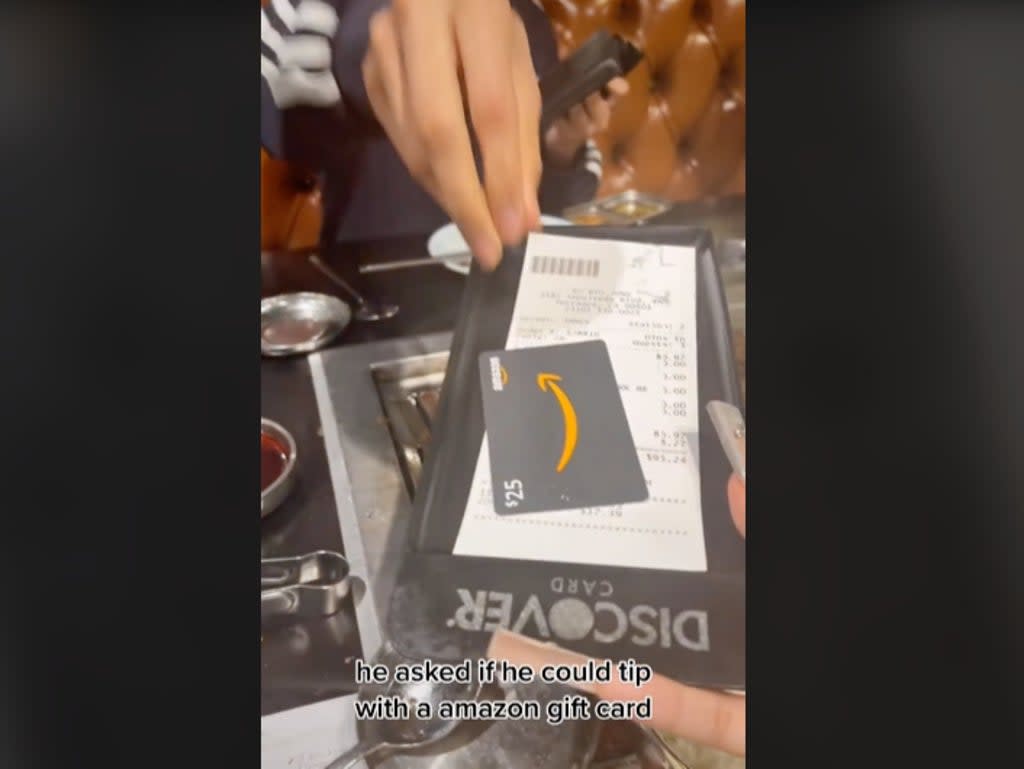Family sparks debate by tipping with Amazon gift card

One Tiktoker’s video post of him tipping with an Amazon gift card at a restaurant has divided social media, and reignited the minimum wage debate.
Gustavo Lombera went for Korean food with his sister Kaitlyn. The bill came to $95.24, and the video shows Mr Lombera using a $25 Amazon gift card to cover the tip. The voiceover on the clip states that “he asked if he could tip with an Amazon gift card”.
“Holidays left us broke” reads the post which now has almost 700,000 views. The family supposedly asked the waiter if they could tip with the gift card, to which the waiter chuckled and agreed it was fine, according to Mr Lombera.
Some people said the family was being cheap: “people can’t pay their bills with an Amazon gift card,” commented one user. Some also said there may not be the full balance remaining on the gift card. And another said it could make things difficult if serving staff are obligated to share tips with the rest of the restaurant staff.
However, many servers said they would love a gift card as a tip. “As a waitress, I would love it!” said one user, “$25 that’s more than 20 per cent too”.
Cash tips should be declared as income, but a gift card can be considered a gift, so may be preferable.
“Once a lady has no cash and tipped me with a $10 Starbucks card. I loved it!” said another Tiktoker.
The debate also expanded to fair wages and the idea people should be paid properly instead of relying on tips. “Tipping should be abolished,” said one user.
The federal minimum wage for covered nonexempt employees is $7.25 per hour, and hasn’t been raised since 2009. But some states have their own minimum wages, Washington DC has a $15.20 minimum wage and California has a $15 minimum wage. Massachusetts has a $14.25 minimum wage and, as of 7 January, Connecticut now has a $14.00 minimum wage. Wyoming and Georgia have minimum wages of $5.15 although employers subject to the Fair Labor Standards Act must pay the $7.25 federal minimum wage.
A 2021 Congressional Budget Office (CBO) predicted that 1.4 million jobs would be lost (0.9 percent of employment) by 2025 to cover the increase in the minimum wage. Other experts have said that an across-the-board minimum wage increase would more likely raise the prices of goods and services, which would be spread out among consumers and have a relatively low impact.

